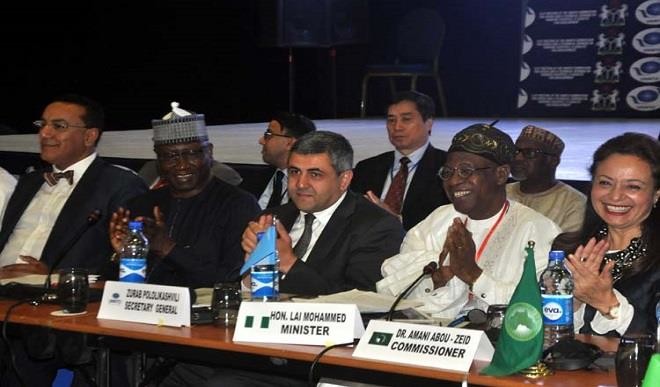
The African craft and tourism sector as a whole is generally recognised as a large employer of women and one that encourages female entrepreneurship.
The sector has the potential to provide supplementary income for the household, and expand in response to demands from tourists.
Although there is no reliable data to tell what percentage of women operates in the sector, the contribution of the tourism industry in Nigeria is estimated at around $1.5 billion. However, most of the high-earning jobs in the industry are held by men.
Experts say the sector is capable of empowering women in multiple ways, particularly through the provision of jobs and income-generating opportunities; but that is if it engages more with individual businesswomen to ensure that women are given a fair chance.
These, among other issues, were discussed at the 61st meeting of the United Nations World Tourism Organisation’s Regional Commission for Africa (UNWTO CAF) with the theme ‘Tourism Statistics: A Catalyst for Development’, held in Abuja recently.
Secretary General of UNWTO, Zurab Pololikashvili, at the meeting said although significant progress has been made over the years in advancing gender equality, women and girls are still likely to be marginalized in many economic sectors and face precarious employment.
He said tourism is one of the key economic sectors that have the potential to contribute to greater gender equality and the empowerment of women. This is especially important because tourism is one of the world’s cross-cutting and fastest growing sectors, which accounts directly and indirectly, for 10% of the world’s jobs and GDP.
The UNWTO SG noted that tourism is one of the sectors with the highest share of women employees.
He said with about 49% of the workforce in hotels and restaurants who are women and entrepreneurs, the sector can offer women opportunities to unlock their potential, help them become fully engaged and lead in every aspect of society.
“Even if progress has been made in the empowerment of women, they are still far from enjoying the same basic rights, privileges and benefits that are available to men.
“Research shows that women, in particular young women, in tourism are still not fully benefitting from the sector. Although 48.5% of employees in the hotel and restaurant services industry in developing countries are women, they earn between 10 – 15% less than men,” he said.
The UNWTO chief said in Africa, tourism is on the rise and many countries have identified the sector as a tool for sustainable development and inclusive growth, adding that the sector generates 8.5% of GDP, while more than 21 million jobs are created directly and indirectly by the sector.
He however expressed worry that though women in Africa represent more than 50% of the population, with about 73% of the workers in tourism contributing to the family being women, they are mostly on vulnerable and low-skilled jobs and that the gender gap is more than 50% in the labour force participation.
Pololikashvili also noted that women are more likely to have a leadership voice in tourism governance than in other areas, but that they only number about 30.5% of entrepreneurs in the hotel and restaurant service sector, the figure, he lamented, remained low.
In view of these, Pololikashvili said UNWTO was redoubling its efforts in contributing to promote gender equality and women and girls empowerment in the tourism sector to meet the fifth target of the Sustainable Development Goals (SDG 5) by enhancing opportunities for women’s participation in the workforce, women’s entrepreneurship and women in executive positions and to raise awareness on key issues regarding their empowerment in tourism, with a particular focus on young women.
He also said the organisation will encourage mentoring and promote education and training of women as well as promote and advocate for training facilities and hospitality schools.
In his speech, the Minister of Information and Culture, Alhaji Lai Mohammed, who was the host minister, said tourism has become an important sector of the economy, especially as a vital source of foreign exchange earnings, employment generation, income creation and poverty reduction.
“For us in Nigeria, it is one of the sectors we have identified as very key to our economic diversification agenda. The sustained growth of the tourism industry illustrates how this all-important sector, with its added advantage of infinitude, can assist member states’ economies and to reap the benefits of globalization,” he said.
The Commission for Africa attracted tourism ministers from the region and key tourism stakeholders from 36 countries.
The participants underscored how tourism projects can contribute to poverty alleviation, the importance of finding innovative approaches to developing tourism on the continent and the need to find and foster new partnerships and resources.

 Join Daily Trust WhatsApp Community For Quick Access To News and Happenings Around You.
Join Daily Trust WhatsApp Community For Quick Access To News and Happenings Around You.


